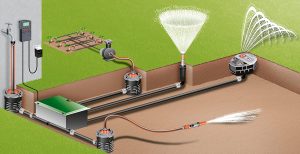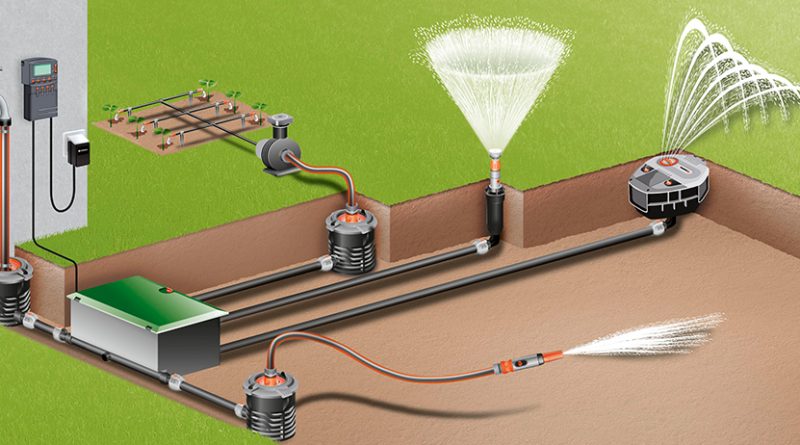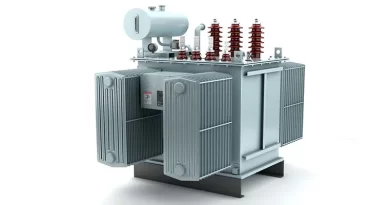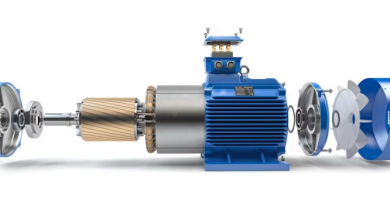How to Install a Smart Irrigation System in Your Home
How to Install a Smart Irrigation System in Your Home
An intelligent or Smart irrigation system is a device that uses various technologies to control and optimize the watering of your lawn, garden, or plants. An innovative irrigation system can help you save water, money, and time, as well as improve the health and beauty of your landscape. An intelligent irrigation system can also connect to your smartphone, voice assistant, or smart home hub, allowing you to monitor and adjust your watering schedule remotely or automatically.
However, installing a smart irrigation system in your home can be a complex and challenging task, as there are many factors to consider, such as:
- Your watering needs and goals
- Your budget and financing options
- Your available space and location
- Your preferred smart irrigation type and technology
- Your installation and maintenance requirements
In this blog, we will guide you through these factors and help you make an informed decision that suits your situation and preferences.
Your Watering Needs and Goals for a Smart Irrigation System
The first factor to consider when installing a smart irrigation system in your home is your watering needs and goals. This will help you determine the size and capacity of the smart irrigation system you need and the potential benefits and costs of having one.
To assess your watering needs and goals, you can:
- Look at your past water bills and find out how much water you use monthly or annually for irrigation purposes.
- Identify the types and sizes of plants that you want to water, such as grass, flowers, vegetables, trees, etc.
- Determine how much of your water consumption you want to reduce or optimize with a smart irrigation system, such as 50%, 75%, or 100%.
- Set a budget for your smart irrigation system project and look for any incentives or programs that can help you finance or reduce the cost of it.

Your Budget and Financing Options
The second factor to consider when installing a smart irrigation system in your home is your budget and financing options. This will affect the type and quality of the smart irrigation system you can afford, as well as your project’s return on investment and payback period.
The cost of a smart irrigation system depends on several factors, such as:
- The size and capacity of the smart irrigation system: The larger and more powerful the smart irrigation system, the more expensive it is. According to HomeAdvisor, a leading online platform that connects homeowners with home improvement professionals, the average cost of installing a sprinkler system ranges from $2,900 to $4,500, depending on the size of the property, the number of zones, and the type of sprinkler heads. The average cost of installing a smart controller for an existing sprinkler system ranges from $100 to $500, depending on the features, compatibility, and installation difficulty.
- The type and quality of the smart irrigation system: There are two main types of smart irrigation systems: weather-based systems and soil moisture-based systems. Weather-based systems use weather data from local stations or online sources to adjust the watering schedule according to the current or forecasted conditions. Soil moisture-based systems use sensors that measure the moisture level in the soil to determine when and how much water is needed. Weather-based systems are more common and cheaper than soil moisture-based systems but have lower accuracy and reliability.
- The installation and wiring costs: The installation and wiring costs of a smart irrigation system depend on the complexity and location of the project, as well as the labor rates of the contractor or installer. According to HomeAdvisor, the average installation cost of a sprinkler system ranges from $500 to $1,000, while the average installation cost of a smart controller ranges from $50 to $200.
Various financing options can help you pay for your smart irrigation system project, such as:
- Cash: Paying cash upfront is the simplest and cheapest way to finance your smart irrigation system project, as you avoid any interest or fees. However, paying cash upfront also requires a large amount of money that may not be available or preferable for some customers.
- Loans: Loans are borrowed money that you have to pay back with interest over a period of time. Loans can be obtained from banks, credit unions, or other lenders. Loans can help you spread the cost of your smart irrigation system project over time, but they also increase the overall cost due to interest and fees.
- Rebates: Rebates are refunds or discounts that are offered by manufacturers, retailers, or utility companies for purchasing or installing certain products or services. Rebates can help you reduce the upfront cost of your smart irrigation system project, but they also require you to meet specific eligibility criteria and submit proof of purchase or installation.
- Tax credits: Tax credits are reductions in the taxes you must pay for a given year. Federal, state, or local governments offer tax credits for installing or using certain energy-efficient or water-saving products or services. Tax credits can help you save money on your tax bill, but they also require you to meet specific eligibility criteria and submit proof of purchase or installation.
Your Available Space and Location
When installing an intelligent irrigation system in your home, the third factor is your available space and location. This will affect the innovative irrigation system’s size, shape, and placement, noise level, and safety issues.
To evaluate your available space and location, you can:
- Measure the dimensions of your property and the area where you want to install the smart irrigation system.
- Check the local zoning and building codes for your property and the smart irrigation system project.
- Consider the distance and accessibility of the smart irrigation system from your main water supply, electrical panel, and service entrance.
- Consider the noise level and vibration of the innovative irrigation system and how it will affect your neighbors and surroundings.
- Consider the ventilation and drainage requirements of the innovative irrigation system and how it will affect the temperature and humidity of your property.
Your Preferred Smart Irrigation Type and Technology
When installing a smart irrigation system in your home, the fourth factor to consider is your preferred smart irrigation type and technology. This will affect the performance and functionality of your smart irrigation system and ease of use and integration with other devices.
To choose your preferred smart irrigation type and technology, you can:
- Compare the pros and cons of different smart irrigation types, weather- or soil moisture-based. Some factors to consider are accuracy, reliability, compatibility, and cost.
- Compare the pros and cons of intelligent irrigation technologies like Wi-Fi, Bluetooth, Zigbee, Z-Wave, or LoRa. Some of the factors to consider are range, speed, security, battery life, and interoperability.
- Check the compatibility and availability of your desired intelligent irrigation system with your preferred smart irrigation type and technology. Some innovative irrigation systems may only work with certain types of technologies or may require additional devices or apps to work with them.
- Check the reviews and ratings of your desired smart irrigation system and its type and technology. Some smart irrigation systems and their types and technologies may have better or worse customer feedback, support, or updates than others.
Your Installation and Maintenance Requirements
The fifth and final factor to consider when installing an innovative irrigation system in your home is your installation and maintenance requirements. This will involve connecting and configuring your intelligent irrigation system and its devices or platforms in your home.
To install and maintain your smart irrigation system, you can:
- Turn off the water supply to your home before working on any plumbing or sprinkler devices.
- Follow the instructions of your specific smart irrigation system and its devices or platforms for installation and wiring.
- Use a level to make sure that your smart irrigation system is aligned and balanced on the wall or floor.
- Use wire nuts or electrical tape to secure the connections between the wires and the terminals.
- Test your smart irrigation system after installing and wiring it to make sure that it is working properly and responding to your commands and settings.
- Download the app of your smart irrigation system and its devices or platforms on your smartphone and follow the instructions for installation and setup.
- Create an account, scan a QR code, connect to a Wi-Fi network, and customize your settings and preferences.
Conclusion
Installing a smart irrigation system in your home can be a smart and beneficial decision that can help you save water, money, and time and improve the health and beauty of your landscape. A smart irrigation system can also connect to your smartphone, voice assistant, or smart home hub, allowing you to monitor and adjust your watering schedule remotely or automatically.
Following this guide, you can assess your watering needs and goals, budget and financing options, available space and location, preferred smart irrigation type and technology, and installation and maintenance requirements. By doing so, you can install a smart irrigation system in your home by yourself or with the help of a professional.
Frequently Asked Questions (FAQs)
1. What is a smart irrigation system?
- A smart irrigation system is an automated watering system that uses sensors and technology to optimize water usage in your garden or lawn.
2. Why should I consider installing a smart irrigation system?
- Smart irrigation systems help conserve water, save money on water bills, and ensure your plants receive the right amount of moisture.
3. Can I install a smart irrigation system myself, or should I hire a professional?
- Installation complexity varies, but many smart irrigation systems offer user-friendly installation guides. Hiring a professional is an option if you’re unsure.
4. How does a smart irrigation system work?
- Smart irrigation systems use weather data and soil moisture sensors to determine when and how much to water, adjusting irrigation schedules accordingly.
5. What are the main components of a smart irrigation system?
- Components include a controller, moisture sensors, weather sensors, valves, and a smartphone app for remote control.
6. Can a smart irrigation system be integrated with my existing sprinkler system?
- Many smart systems are compatible with existing sprinkler systems, allowing for upgrades without a full replacement.
7. What types of weather data do smart irrigation systems use for scheduling?
- They use weather forecasts, historical weather data, and real-time weather updates to adjust watering schedules.
8. Are there different types of moisture sensors available for smart irrigation systems?
- Yes, there are soil moisture sensors and rain sensors, both of which help the system make informed watering decisions.
9. How can I control my smart irrigation system remotely?
- Most smart irrigation systems offer smartphone apps that allow you to monitor and control watering schedules from anywhere.
10. Are smart irrigation systems water-efficient?
- Yes, smart systems optimize watering based on weather and moisture levels, reducing water wastage and promoting water conservation.
11. What are the benefits of zone-based irrigation in a smart system?
- Zone-based irrigation allows you to customize watering schedules for different areas of your garden, ensuring each gets the right amount of water.
12. Can a smart irrigation system help me save money on water bills?
- Yes, by avoiding overwatering and adjusting to weather conditions, smart irrigation systems can lead to significant water savings.
13. How do I ensure the proper installation of moisture sensors in my garden?
- Follow the manufacturer's guidelines for sensor placement to ensure accurate readings and efficient watering.
14. Are there any maintenance requirements for smart irrigation systems?
- Regularly check and clean sensors, ensure proper valve function, and keep the controller and app up to date for optimal performance.
15. What is the return on investment (ROI) for an irrigation system?
- The ROI can vary depending on factors like water costs and the size of your garden, but many users see savings within a year or two due to reduced water usage.




